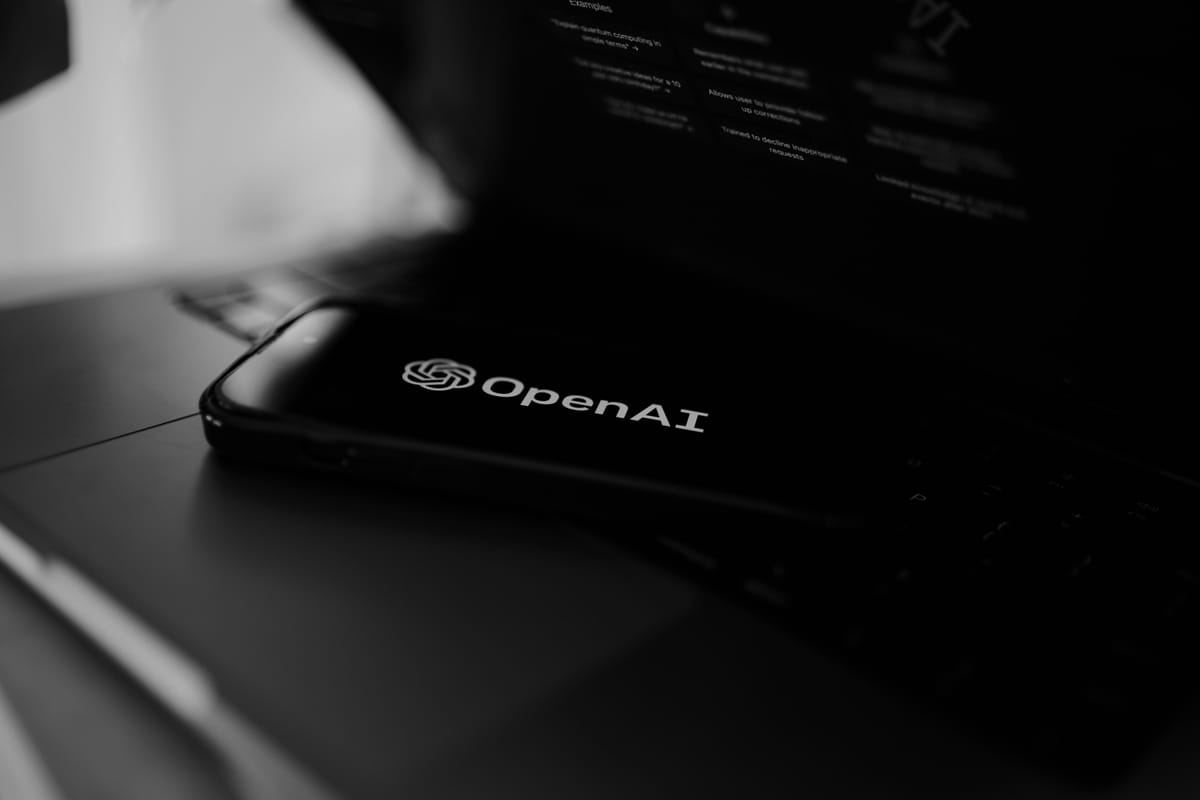Popular Generative AI Tools You Can Use Today

Generative AI represents a transformative advancement in technology. However, its true value hinges on how easily users can extract value from it. The quality of the technology is tied to the effectiveness of the medium it offers—a job left to the developers of generative AI platforms. Some pioneers in this field have successfully proven its potential, playing a crucial role in driving widespread adoption of generative AI tools.

This quick read showcases eight generative AI platforms that have swept up the market and are shaping the generative AI landscape: ChatGPT, Gemini, AlphaCode, Microsoft Designer, GitHub Copilot, Scribe AI, Jasper, and Synthesia.
What's Inside
ChatGPT
ChatGPT is OpenAI’s all-inclusive platform and currently holds around 100 million active users. It’s a virtual assistant that sifts through terabytes of data to create answers to any given prompt—travel planning, recipe suggestions, code completion, excel and other desktop app tricks, tax form guides, personal finance and education, event planning, and anything users may think of.
GPT-4, the latest version, has greater detail and accuracy, the ability to process both image and text input, and responses of up to 25,000 words—8x more than the previous model. View here for a quick snippet on its use cases.
“It is estimated that ChatGPT-4 will be trained on 100 trillion parameters, which is roughly equal to the human brain” (tooltester.com).
Gemini
Google’s Gemini is an experimental, yet powerful conversational AI similar to ChatGPT. The platform’s multimodal abilities allows it to “understand, operate across and combine different types of information including text, code, audio, image and video” (blog.google).
“With a score of 90.0%, Gemini Ultra is the first model to outperform human experts on MMLU (massive multitask language understanding), which uses a combination of 57 subjects such as math, physics, history, law, medicine and ethics for testing both world knowledge and problem-solving abilities.”—Google
Unlike ChatGPT, Gemini is allowed to pull information from the web. It even accesses information from Google apps—YouTube, Maps, Gmail, Drive, for instance—making for much more personal content and impact.
AlphaCode
Google’s AlphaCode 2, part of a specialized version of Gemini, is a coding tool that assists programmers with writing code. It is known for its ability to go beyond conventional suggestions and seamlessly complete entire code blocks with precision and “novel and interesting solutions” (deepmind.google).
“When evaluated on the same platform as the original AlphaCode, AlphaCode 2 shows massive improvements, solving nearly twice as many problems, and we estimate that it performs better than 85% of competition participants — up from nearly 50% for AlphaCode. When programmers collaborate with AlphaCode 2 by defining certain properties for the code samples to follow, it performs even better.”—Google
What sets AlphaCode 2 apart is its contextual awareness, as it adapts to project-specific requirements. Generative AI platforms such as AlphaCode can provide a more fluid coding experience and, more importantly, expedite modern software development.
Microsoft Designer
Microsoft Designer generates visually stunning graphics and layouts—professional quality social media posts, fliers, digital postcards, marketing templates, and more. Integrated with Microsoft Designer, OpenAI’s DALL-E is a game-changer for stunning images with its ability to swiftly transform concepts into captivating visual narratives. The clearer the prompt, the more impressive the result.
“Just type what you want to see.”—Microsoft
As creators and companies use the platform to manifest visual excellence within their brands, Microsoft Designer represents a new era where creativity intertwines with computational intelligence.
GitHub Copilot
GitHub Copilot is another coding companion that offers real-time, context-aware code suggestions as developers craft software. The platform can understand context and even adapts to programmers’ unique coding styles, all of which accelerates development and reduces coding time:
“Developers using GitHub Copilot code 55% faster.”—GitHub
For seasoned developers and novices alike, GitHub Copilot eases the coding process significantly. Indeed, in a study conducted by GitHub, “88% of developers reported maintaining flow state with GitHub Copilot Chat because they felt more focused, less frustrated, and enjoyed coding more” (github.blog).
Scribe AI
Scribe AI is a creative tool used to generate authentic writing. It automates the process of writing how-to’s, tool overviews, onboarding and training guides, help center pages and FAQs, as well as process guides for colleagues and clients. A step further, it can turn those process guides into visuals.
Scribe AI is especially useful in a corporate setting as it can reduce time spent on onboarding, training, answering questions, and developing or organizing content. Overall, the platform intuitively understands any writing style and seamlessly generates cohesive content.
Scribe AI helps “boost your team’s productivity by 25%...documents your processes 15x faster… find answers to your questions 67% faster.”—Scribe
Jasper
Jasper is a marketer’s adored medium for creating “blogs, social media posts, web copy, sales email, ads, and other types of customer-facing content” (hbr.org). Other examples include product descriptions, ad copies, and even brand-tailored art–all made possible with ChatGPT and Dall-E as its underlying technologies.
“Turn a single brief or piece of content into a multichannel campaign in seconds.”—Jasper
By automating and accelerating multiple facets of a brand’s marketing, Jasper enables individuals and companies to reinvest their time on what’s important: delivering their brand’s purpose.
Synthesia
Synthesia empowers creators to generate hyper-realistic AI-powered videos. The platform offers a plethora of features, such as text-to-speech professional voice overs, customizable AI avatars, automatic script and closed captions generation, screen recording, a vast library of royalty free media, and more.
The use cases for Synthesia are broad; for instance, co-founder and CEO of Synthesia describes how companies can “produce uniform, on-brand video content for everything from internal training to personalized sales prospecting” (hbr.org).
“Synthesia Ltd. said 47% of the Fortune 100 list are customers for the British startup’s computer-generated avatars” (bloomberg.com).
Conclusion—Get Started Today
Each generative AI platform is a testament to the incredible opportunities that technology offers. With these platforms, individuals and organizations alike can solve complex problems, collect code or ideas for upcoming projects, and execute on their purpose.
The future belongs to those who dare to dream, act, and leverage the power of generative AI to transform their visions into realities—and, of course, transform the world.
References and Credits
- Bergen, Mark. “Synthesia Sells Its Uncanny AI Avatars to Nearly Half of the Fortune 100 Companies.” Bloomberg, Bloomberg, 24 Oct. 2023.
- Brandl, Robert, and Cai Ellis. “ChatGPT Statistics 2024.” Tooltester, 19 Jan. 2024.
- “Competitive Programming with AlphaCode.” Google DeepMind, The AlphaCode Team, 8 Dec. 2022.
- Davenport, Thomas H, and Nitin Mittal. “How Generative AI Is Changing Creative Work.” Harvard Business Review, 14 Nov. 2022.
- Parsons, Guy. “How to Use AI Image Prompts to Generate Art Using Dall‑e.” Learn at Microsoft Create, 17 Dec. 2023.
- Pichai, Sundar. “An Important next Step on Our Ai Journey.” Google, Google, 6 Feb. 2023.
- Pichai, Sundar. “Introducing Gemini: Our Largest and Most Capable AI Model.” Google, Google, 6 Dec. 2023.
- Rodriguez, Mario. “Research: Quantifying Github Copilot’s Impact on Code Quality.” The GitHub Blog, 10 Oct. 2023.
- Seymour, Mike, et al. “AI with a Human Face.” Harvard Business Review, 14 Feb. 2023.

